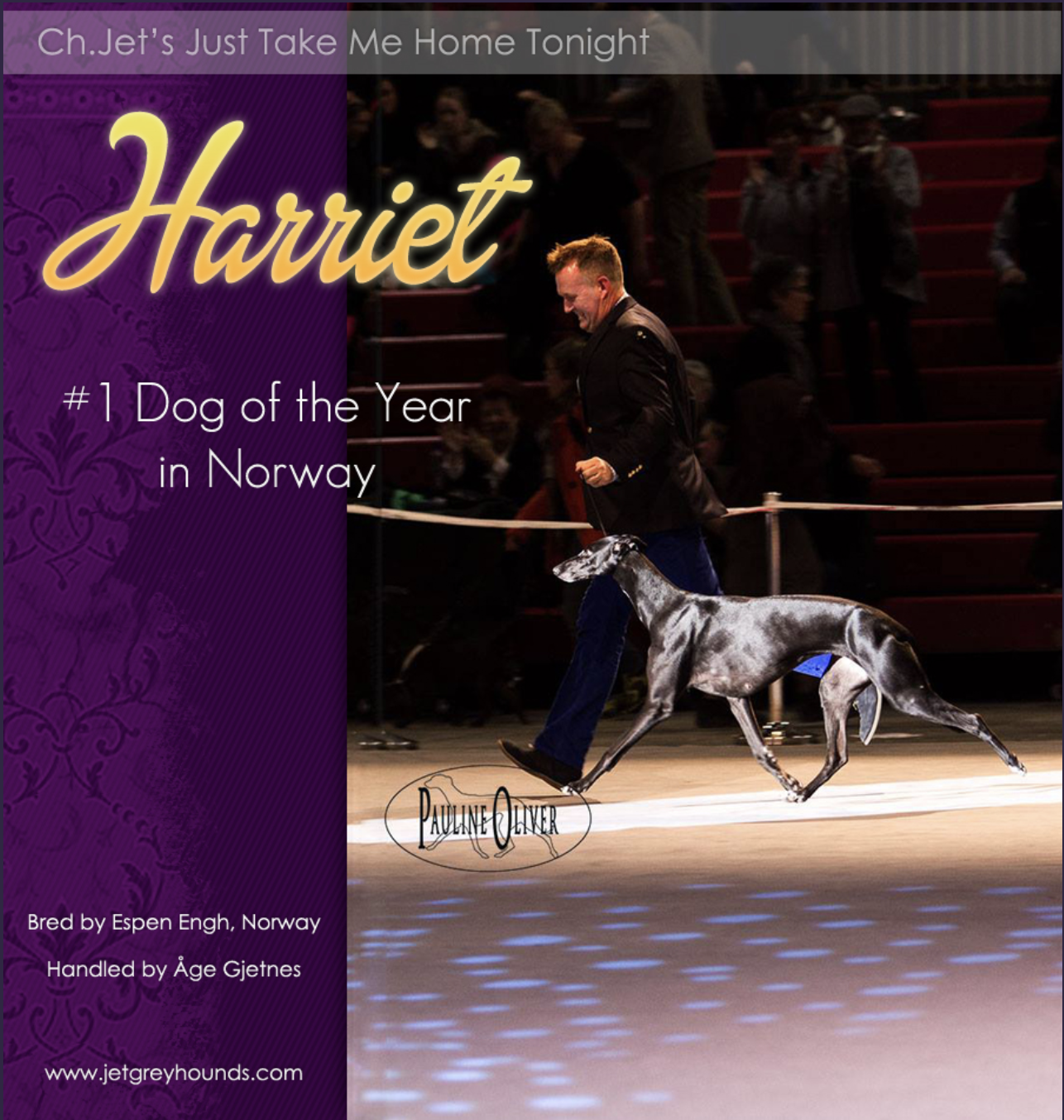Shownotes
Espen Engh on Greyhounds and Judging
Host Laura Reeves is joined from Norway by famed breeder and judge Espen Engh of Jet’s Greyhounds for a two part conversation about Greyhounds, judging, breeding and why the Scandinavian dogs are so consistent in quality.
[caption id="attachment_12982" align="alignleft" width="376"] Int. Ch. Jet’s Elegant Negress, Engh's first Best in Show winner from his first litter.[/caption]
“I kind of inherited the interest for dogs in general and Greyhounds in particular because my mother started up with a Greyhound in 1955 so she was the source of everything,” Engh said. “She got her own mother hooked on the Greyhounds as well. So I'm a third generation Greyhound fancier and lover.
“My mother was only a teenager when she started out. She was very quickly bitten by the bug and started showing her first Greyhound all over Scandinavia. She didn't breed, however, she didn't have the possibility to do that. So my mother and I started breeding Greyhounds, 20 years after she got her first one, in 1975. And although my mother is no more with us, I keep reading from the same strain, actually from the same bitch line that was started in the early ‘70s.
“There are many things that make the Greyhounds unique. And one of them is their long, long, long history and the amount of generations that have gone into breeding greyhounds. I'm quite sure that the Greyhound is the only breed where you can actually trace the pedigrees back to the 1700s.
“(The first description of the Greyhound as having the “head of a snake, the neck of a drake”) is from a poem that was attributed to a woman called Juliana Burners more than 500 years ago.
[caption id="attachment_12981" align="alignright" width="317"]

Ad for one of Engh's multiple BIS winning Greyhounds.[/caption]
Actually, she didn't exist. So it's somebody else wrote it. But that you could say is kind of the first Greyhound standard, because it describes the Greyhound, the head, the neck, the feet in a poem. Greyhounds are a very sophisticated breed. They are very close to their owners. They are about a combination of substance with elegance.”
Engh has been invited to judge at the highest levels worldwide.
“It certainly is a privilege. It's certainly something very enjoyable to be able to travel around, somebody else picking up your bill, to enjoy looking at dogs, feasting your eye on dogs, getting that little tear in your eye every now and then, maybe a goose bumps every now and then too, which is really one of the reasons for doing it.
“But it does also present some challenges and some difficulties. Some breeds do have very different breed standards and that can certainly pose some difficulties. Other breeds, actually the breed standards themselves are not that different, but the development of the breeds are. So they have developed in quite different directions.
“Obviously, and I think we need to state that from the beginning, if you are willing and able and do undertake judging a breed in a foreign country, you have to respect the breed standard in that country. I mean, that should go without saying, but it doesn't always.”